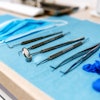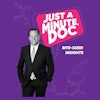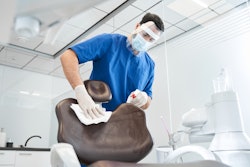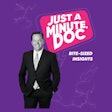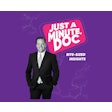The 2025 Antibiotic Stewardship Summit underscored a clear message: dental professionals are vital players in curbing antibiotic resistance. With themes of collaboration, learning, evidence-based practice, and policy integration, this year’s summit brought together leaders across disciplines to explore the path forward. If you didn’t have a chance to join the summit live, you can access the recordings here.
 Dr. Erinne Kennedy. Image courtesy of Kansas City University.
Dr. Erinne Kennedy. Image courtesy of Kansas City University.
Dentists alone are responsible for 75 out of every 1,000 antibiotic prescriptions, highlighting the urgency for more precise, evidence-based prescribing practices and better implementation of existing guidelines.
The summit highlighted areas for progress, with a high priority being the reduction in the use of clindamycin.
While clindamycin use is on the decline, it’s not fast enough. Clindamycin has a black box warning due to the adverse outcomes associated with this medication. Strategies, including the use of chairside clinical decision algorithms, integrating antibiotic guidelines into electronic health records (EHRs), and the use of auditing tools like collaboration to harmonize antimicrobial registry measures, or CHARM, are helping tailor guidelines for real-time use to encourage a faster decrease in using this drug.
Regional and state health departments described successful tactics and tools to help reduce unnecessary dental prescriptions. Of note is the positive impact dental practices can make by demonstrating their commitment to antibiotic stewardship through team education and visual aids (posters, etc.). The Association for Dental Safety (ADS) has posted key elements of these successful toolkits on its antibiotic stewardship webpage.
A pharmacologist with expertise in infectious diseases and an attorney discussed how dentists can avoid the path to litigation by emphasizing collaboration and communication between dentists/patients, dentists/peers, dentists/physicians. The conference led to a collaborative discussion about the medical/legal risks associated with prescribing and reminded attendees that the one who prescribes the antibiotic is ethically and legally responsible for any adverse outcomes.
Looking ahead, the vision is clear: Integrated medical-dental systems, smarter EHRs, global collaboration, and fewer lawsuits. With united efforts, the dental profession can lead a transformative shift in antibiotic stewardship.
If you are interested in learning more about antibiotic stewardship, the ADS updates its Antibiotics Stewardship for Oral Health resource pages monthly. You can access tailored resources for prescribers, dental team members, policymakers, and patients.
Note: Additional antibiotic stewardship educational sessions are scheduled for the upcoming ADS Annual Conference in Orlando, FL.
- "Making the Connection Between Infection Prevention and Antibiotic Stewardship in Dentistry," May 31, 4:30-5:30 p.m. (Eastern time)
- "Train the Trainer Workshop: How to Include Antibiotic Stewardship Into Your Training Today!" May 31, 11:15 a.m.-12:15 p.m. (Eastern time)
Dr. Erinne Kennedy, MPH, MMSc, is the assistant dean for curriculum and integrated learning at Kansas City University's College of Dental Medicine.
The comments and observations expressed herein do not necessarily reflect the opinions of DrBicuspid.com, nor should they be construed as an endorsement or admonishment of any particular idea, vendor, or organization.

